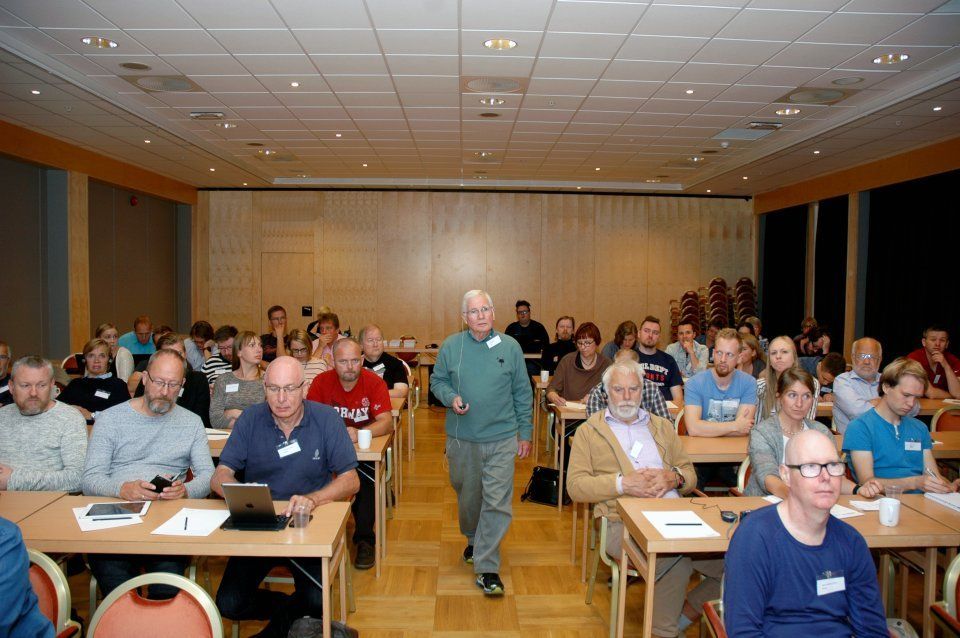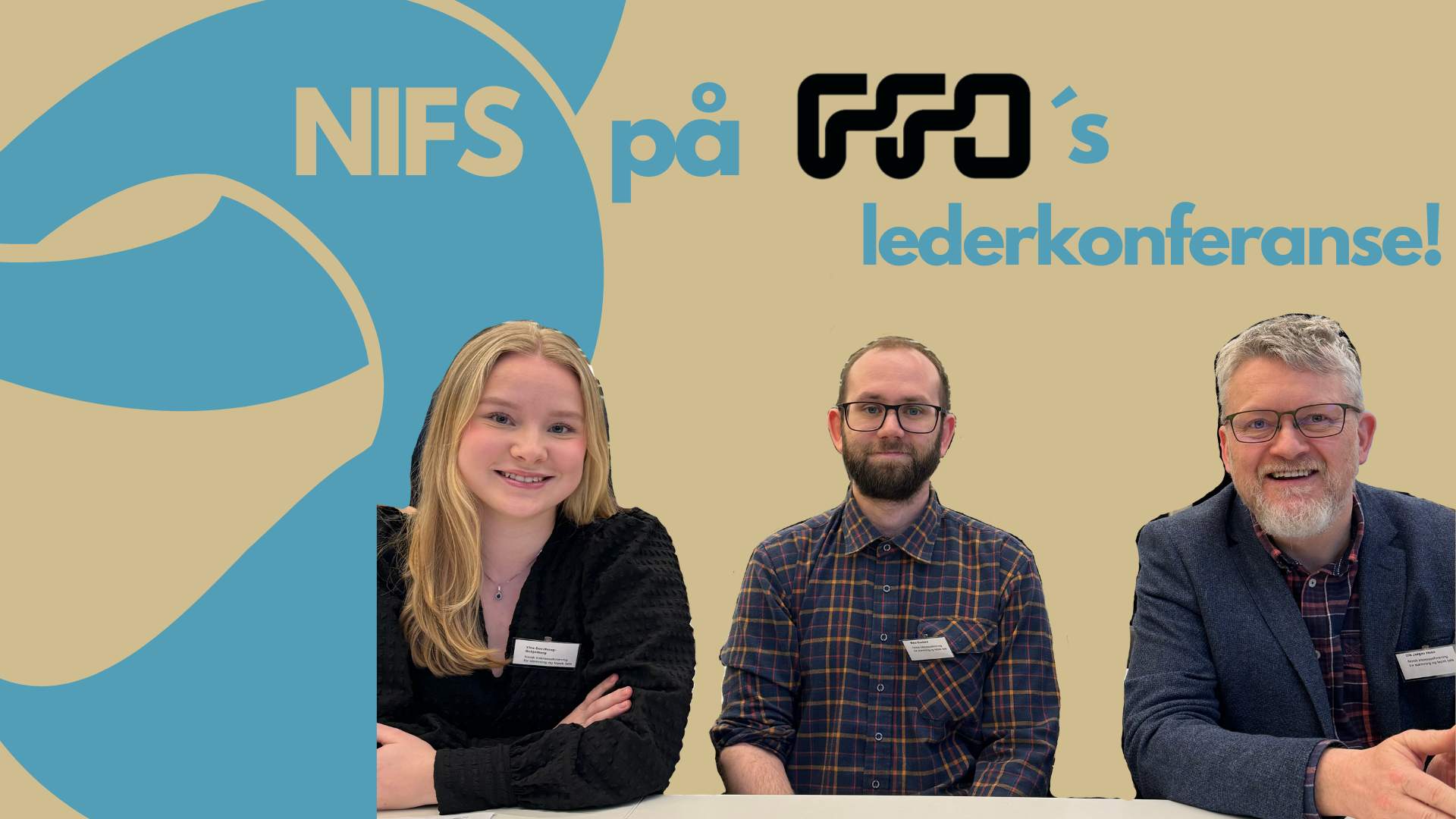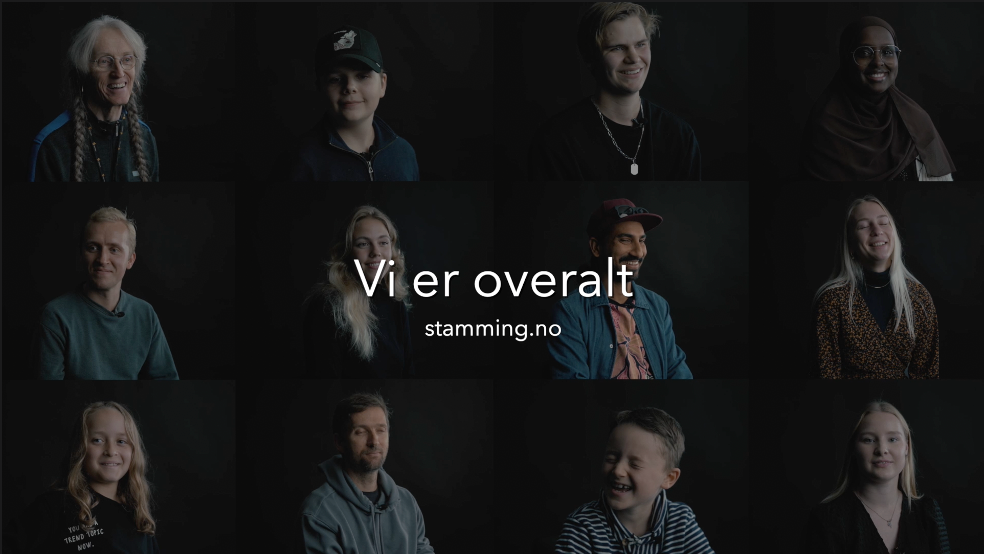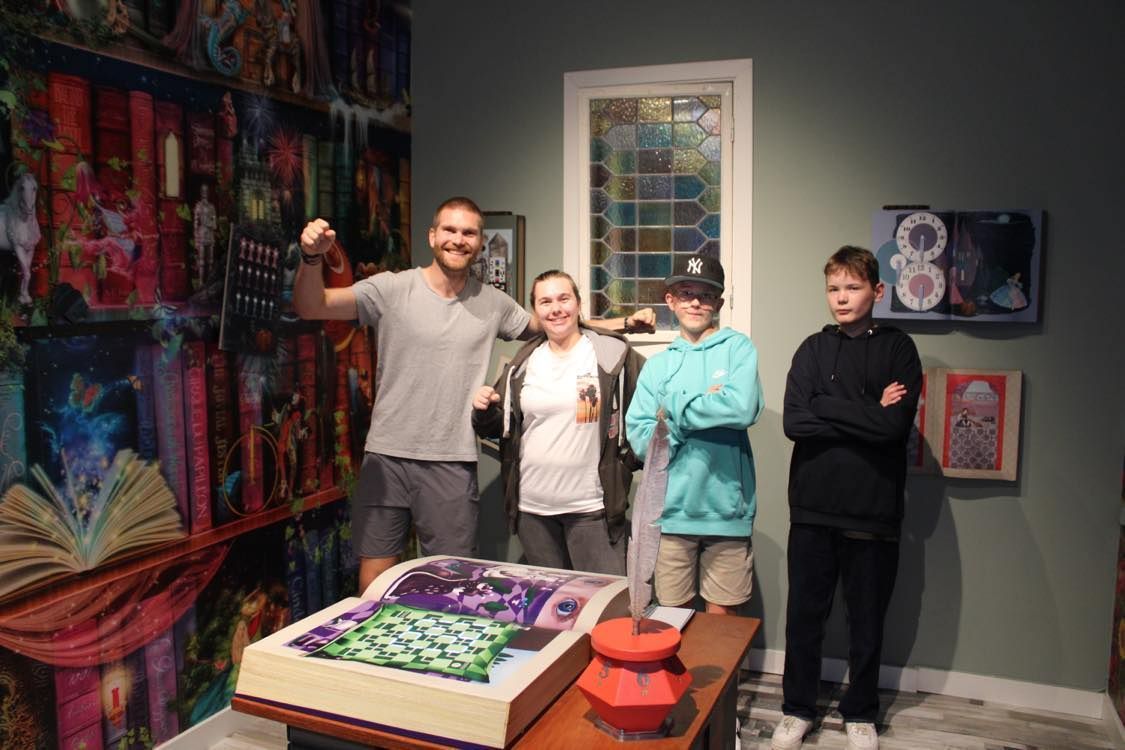Blog Layout
THE NORDIC STUTTERING SEMINAR 2017 IN LILLEHAMMER: Facing the fear of stuttering
Martin Aasen Wright (English translation by: Liv Goldstein) • okt. 08, 2017

GUITAR: The more you get to know your stuttering and explore it, the more you will feel comfortable with it and understand that it is not your fault, and you will start to realize that the stuttering more and more dissolves by itself, says Barry Guitar. PHOTO: Martin Aasen Wright
Speaking is what you are most afraid of when you stutter. The esteemed professor Barry Guitar encourages us to get to know our own stuttering.
Written by: Martin Aasen Wright
English translation by: Liv Goldstein
Published: 10.09.2017
– I felt that something was wrong with me, something weak and insufficient, because I didn’t even manage to say my own name. I was holding back a lot, Barry Guitar explains in an interview with the Norwegian Stuttering And Cluttering Association ( NIFS) during the Nordic Seminar about stuttering held in Lillehammer.
The first weekend in September 60 people who stutter, from eight different countries, participated in the Nordic Seminar. The event has a long tradition in the Nordic countries, and was arranged for the first time at Leangkollen, Asker, Norway in 1969 with participants from Sweden, Denmark and Finland.
Oslo logopedlag (Oslo Association of Logopedists) cooperated with NIFS on this year’s seminar, where the keynote speaker was Barry Guitar. He is a professor at the Department of Communication Sciences, University of Vermont, and holds a Ph.D. from the University of Wisconsin in 1974. He teaches and coaches clinical treatment for stuttering, and has written a number of textbooks which are also used to a great extent by Norwegian speech therapists. Professor Guitar is regarded as one of the most important names in the fluency field today.
The theme for the Nordic Seminar in Lillehammer was: Be proud of your stuttering. And Barry Guitar wanted to encourage everybody who stutters: Stay in the feared situation, don’t run away, and become friends with your stuttering.
Felt he had shortcomings
Stuttering can be experienced by prolongations and blocking of sounds, but lesser known characteristics of stuttering are the negative feelings and the fear of showing that you don’t talk like everyone else. Up to 10 per cent of all preschool children stutter, and around one per cent of the adult population does.
Barry Guitar started stuttering when he was three years old, and he remembers his stuttering being severe when he grew up. He stuttered mostly in school, from elementary school up to high school. In the 1940’s there were no logopedists like today.
His father fought in WWII, and Barry’s grandfather became his father figure. This grandfather was a strict man. The first episode Barry can remember about his stuttering was in his grandfather’s house where he dropped something that broke, and his grandfather got upset and asked, «Why did you break it?»
– When I answered him, I had a long repetition «I-I-I». My grandfather mocked me by imitating my stuttering. I was three years old, Barry says.
– That’s when I started being ashamed of my stuttering. He was a very critical person. I felt that I didn’t do what was expected of me. This made me feel incompetent.
Today Barry Guitar gives lectures in many parts of the world.
– I had such great problems making reports and answering questions in class, that the teachers got so worried they called in a special psychologist to come and talk with me. The psychologist met with me, heard me talk, and thought about it. Then she said, «Barry, here is my advice to you. Don’t ever take up a career that involves speaking.»
– What’s stuttering like for you today?
– It is a combination of how you speak and what feelings you have about your stuttering. What has made the most impact on me is when I haven’t been able to say what I want to say. If someone asked me something or I had to introduce myself, it was a struggle. I have avoided many situations, replaced many words, put in starters like «ah-ah-ah» to try keeping the word fluent without blocking, Barry answers.
There are many memories from childhood having similarities, Barry explains. To push out words through hard blockings he always had a card in his hand that he kept bending. The teachers didn’t understand that he stuttered. He tells about the time when the class was to select a person to visit the authorities and learn about the government. After Barry had been chosen the teacher arranged for a second voting round as nobody thought he could do it.
Therapy with Charles Van Riper
During the seminar in Lillehammer Barry told about his own stuttering and how he does therapy with his clients. When he became a university student he wanted to be just like Charles Van Riper. He wanted to work with children who stutter, and the fact that he stuttered himself would make him a better therapist, he thought.
The American speech therapist Charles Van Riper was a pioneer, and became internationally known for his development of stuttering modification techniques during the period 1936-1958. Barry Guitar had therapy with him, and has learned a lot from his methods.
– One of the things he taught me was to get over my own fear of stuttering, because I think this is what keeps the stuttering «warm» and «alive», Barry says.
Van Riper is known for voluntary stuttering and techniques not to avoid feared situations («non-avoidance”). Voluntary stuttering means that you yourself choose when to stutter, a method to eliminate the fear of the uncontrolled (real) stuttering. It is common for many who stutter that they want to run away from situations where stuttering is expected.
It is challenging to use voluntary stuttering and non-avoidance, and self-therapy is difficult, but will give you more freedom to feel more accepted. Things will get easier the more you experience success, but you need to be dedicated. You can’t do this just now and then.
Boiling over with stuttering
During the lecture Barry asked volunteers to come up to stand before the audience. Face to face with Barry one-on-one, they were asked to talk. When they started to stutter, Barry studied the way they did it with their whole body. Face movements, tension, eye contact, blocking and sounds. The volunteers were supposed to feel what it is like to remain in the stuttering moment.
– The reason why I remain in the blocking is to fight the fear. Fear is the reason why you lock up and get a lot of repetitions following each other. My philosophy is that you should go into the fear repeatedly. The German philosopher Goethe had a fear of tall buildings, and because of that he went to such buildings until he got rid of the fear, Barry says.
– Avoidance only increases the fear. You don’t run from the fear, you accept it and realize that it can’t kill you. You get more self-control and self-confidence. [Demonstrates] When you s-s-s-s-stand in the block, you will easily get out of it. Relax when you start stuttering. The bad habit is built up year after year. You look for the stuttering because you want to get rid of the fear.
– What if you can’t do it?
– When the technique doesn’t work, the fear is still strong. You then have to work to decrease the fear when you are in a block. Voluntary stuttering is therefore important. Keep eye contact and round off in an easy way. You have to accept a lot of failures before you succeed, Barry answers.
Barry explains that it takes time and a lot of patience to work with the fear of stuttering, but working with a long-term goal will give results, he says.
– It is a matter of fear, but also of knowledge about your stuttering. The more you get to know your stuttering and explore it, the more you will feel comfortable with it and understand that it is not your fault, and you will start to realize that the stuttering more and more dissolves by itself.
Del
Tweet
Del
E-post
Bli medlem
Du er ikke alene, vi er mange. 50.000 nordmenn har stamming, 50.000 nordmenn har løpsk tale.
Vil du vite mer? Da er du velkommen som medlem hos oss!
Fyll ut kontaktskjemaet for mer informasjon, eller meld deg inn ved å trykke på knappen under.
Kontaktskjema
Contact Us
Thank you for contacting us.
We will get back to you as soon as possible
We will get back to you as soon as possible
Oops, there was an error sending your message.
Please try again later
Please try again later
BROSJYRER
LIKEPERSONER










